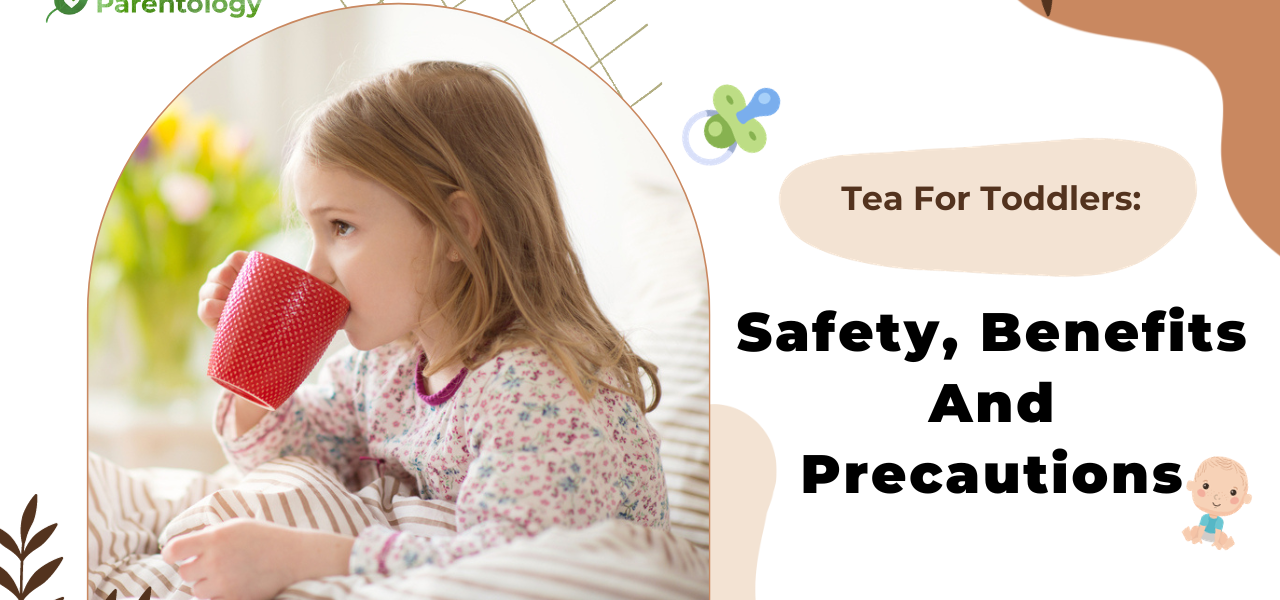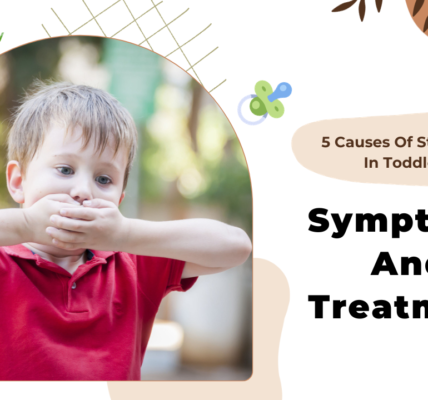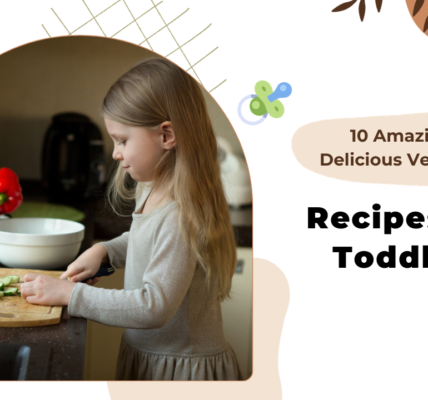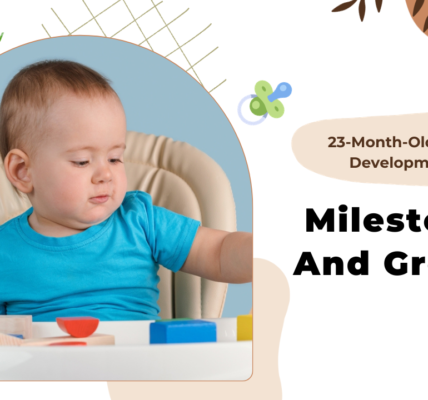Tea is often considered a soothing beverage, but when it comes to toddlers, there are concerns regarding its suitability. As a parent, you might wonder, “Can toddlers drink tea?” This comprehensive guide aims to explore the safety, potential benefits, and precautions associated with offering tea to toddlers.
Safety Concerns
Tea contains caffeine, albeit in varying amounts depending on the type. For toddlers, caffeine intake should be minimal or avoided altogether due to its stimulating effects, potential disruption of sleep patterns, and impact on developing bodies.
Moreover, certain teas may contain tannins and other compounds that could affect iron absorption, posing a risk of iron deficiency in toddlers. Therefore, it’s crucial to exercise caution when considering tea for toddlers.
Types of Tea Suitable for Toddlers
If considering tea for toddlers, certain herbal or caffeine-free options may be safer:
- Chamomile Tea: Known for its calming properties, chamomile tea is caffeine-free and might aid in soothing an upset stomach or promoting relaxation before bedtime.
- Rooibos Tea: Naturally caffeine-free and rich in antioxidants, rooibos tea is gentle and can be a viable option for toddlers.
Benefits of Tea for Toddlers
While the discussion leans toward caution, some herbal teas offer potential benefits for toddlers:
- Digestive Aid: Chamomile tea, in particular, might assist in alleviating digestive discomfort, such as colic or gas.
- Calming Effects: Herbal teas with soothing properties may help relax a toddler before bedtime, contributing to better sleep quality.
- Hydration: Mild, caffeine-free teas can serve as an alternative to water and encourage adequate hydration.
Precautions and Considerations
When introducing tea to toddlers, follow these precautions:
- Consult a Pediatrician: Always seek guidance from a pediatrician before offering any type of tea to your toddler.
- Moderation is Key: Limit tea intake and ensure it doesn’t substitute essential nutrients from a balanced diet.
- Check for Allergies: Monitor for any adverse reactions or allergies when introducing new teas.
Potential Risks and Side Effects
While certain herbal teas might offer benefits, there are potential risks and side effects to be mindful of when considering tea for toddlers:
- Caffeine Sensitivity: Even caffeine-free herbal teas might pose risks due to individual sensitivities or reactions.
- Allergic Reactions: Some toddlers may be allergic to certain herbs present in herbal teas, leading to adverse reactions.
- Interference with Medications: Herbal teas can interact with medications or have contraindications. Always consult with a healthcare professional, especially if your toddler is taking medication or has any medical conditions.
- Dental Health: Sweetened teas or those containing natural sugars may contribute to tooth decay. Always opt for unsweetened or minimally sweetened options.
Tea Preparation and Serving Tips
When preparing and serving tea to toddlers, follow these tips for a safe and enjoyable experience:
- Dilution: Always dilute herbal teas, offering small amounts initially to gauge your toddler’s reaction.
- Temperature: Ensure tea is at a suitable temperature, neither too hot nor too cold, to prevent burns or discomfort.
- Avoid Sweeteners: Steer clear of adding sweeteners like honey or sugar, as these are not recommended for toddlers under 1 year old.
- Supervision: Serve tea under adult supervision and observe your toddler for any adverse reactions.
Alternatives to Tea for Toddlers
Considering the potential risks associated with tea consumption, there are alternative beverages suitable for toddlers:
- Water: Encourage regular water intake to keep your toddler hydrated and maintain overall health.
- Fruit Infusions: Natural fruit-infused water can offer a refreshing and flavorful alternative to tea.
- Milk or Dairy Alternatives: Milk or fortified dairy alternatives can provide essential nutrients like calcium and vitamin D.
When to Seek Medical Advice
If you observe any concerning symptoms or have doubts about offering tea to your toddler, seek prompt medical advice. Symptoms such as unusual behavior, allergic reactions, digestive issues, or changes in sleep patterns should be addressed by a healthcare professional.
Healthy Hydration Practices for Toddlers
Maintaining proper hydration is crucial for toddlers’ health. Here are some general hydration tips:
- Water as Primary Beverage: Encourage water consumption as the primary beverage for toddlers throughout the day.
- Limit Sugary Drinks: Minimize or avoid offering sugary beverages like sodas or fruit juices with added sugars, which can contribute to excessive calorie intake and dental issues.
- Balanced Diet: A well-balanced diet, including fruits and vegetables high in water content, also contributes to adequate hydration levels.
Consulting Healthcare Professionals
The role of healthcare professionals, especially pediatricians, cannot be overstated when making decisions about toddlers’ diets:
- Pediatrician Guidance: Always consult your child’s pediatrician or healthcare provider before introducing new beverages or foods to your toddler’s diet.
- Individual Assessment: Healthcare professionals can provide personalized advice based on your toddler’s unique health considerations and dietary needs.
Educating on Herbal Tea Ingredients
If considering herbal teas for toddlers, it’s crucial to be well-informed about the ingredients:
- Research and Understanding: Educate yourself about different herbal ingredients, their potential effects, and any associated risks or allergies.
- Label Reading: Check tea labels for additives, artificial flavors, or substances that may not be suitable for toddlers.
Monitoring Toddler’s Reaction
When introducing any new beverage or food, including herbal teas, carefully observe your toddler’s response:
- Observe Closely: Monitor for any changes in behavior, allergic reactions, digestive discomfort, or adverse effects after offering tea.
- Keep a Diary: Note down any observations regarding your toddler’s reaction to different herbal teas, aiding in future decisions.
Creating Healthy Hydration Habits
Encouraging healthy habits from an early age sets the foundation for a lifetime of good practices:
- Role Modeling: Lead by example by choosing water or other healthy beverages, showcasing positive hydration habits for your toddler.
- Mealtime Practices: Associate healthy beverage choices, like water or milk, with meal times to establish routine habits.
FAQs About Toddlers Drinking Tea
Q 1. Can toddlers drink black or green tea?
Ans 1: Both black and green teas contain caffeine and are not recommended for toddlers due to potential adverse effects.
Q 2. Are there specific teas that might help with a toddler’s cough?
Ans 2: Certain herbal teas like chamomile or ginger may offer mild relief, but consult a healthcare professional first.
Q 3. At what age can toddlers safely drink herbal teas?
Ans 3: Herbal teas might be considered after consulting a pediatrician, usually around 1-2 years of age.
Q 4. Can I sweeten toddler’s tea with honey?
Ans 4: Avoid giving honey to children under 1 year old due to the risk of botulism. Opt for unsweetened tea for toddlers.
Q 5. Is it safe to give toddlers decaffeinated tea?
Ans 5: Decaffeinated options might be safer, but moderation and pediatrician consultation are still essential.
Q 6. How much tea can a toddler drink in a day?
Ans 6: Limit tea intake to a small amount (around 2-4 ounces) and offer infrequently.
Q 7. Are there teas that can help toddlers relax before bedtime?
Ans 7: Chamomile tea, known for its calming effects, might assist in relaxation before bedtime.
Q 8. Can toddlers drink herbal teas while sick?
Ans 8: Some herbal teas like chamomile or ginger might provide mild relief, but consult a healthcare professional for guidance.
Q 9. Should toddlers drink tea with milk?
Ans 9: Adding milk to tea might hinder the absorption of certain nutrients. It’s advisable to offer tea without milk.
Q 10. Can toddlers drink cold tea?
Ans 10: Cold or iced teas often contain added sugars. Opt for lukewarm or room temperature teas without added sweeteners.
Conclusion: A Balanced Approach
In conclusion, while certain herbal teas might offer potential benefits, the decision to offer tea to toddlers requires careful consideration, moderation, and professional guidance. Prioritize a balanced diet, hydration through water, and consult a pediatrician before introducing any herbal teas to your toddler’s diet.
Remember, every child is unique, and what works for one might not suit another. Parental discretion, caution, and informed decisions play pivotal roles in ensuring your toddler’s well-being.
For further guidance and expert advice on toddlers and tea, refer to Parentology‘s resources on nurturing a healthy lifestyle for your little ones.





